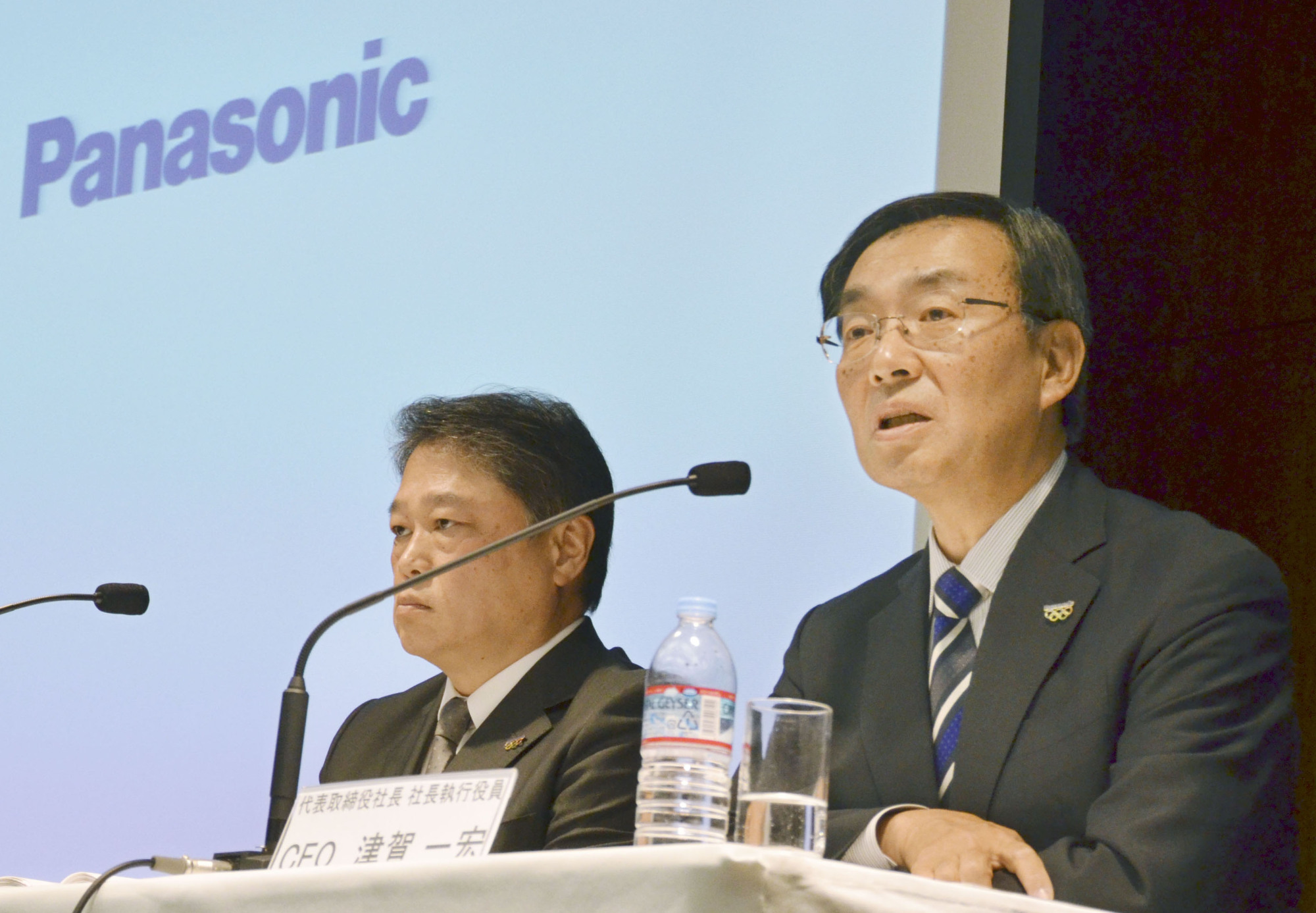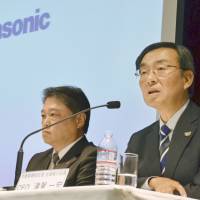Panasonic Corp. said Thursday that group net profit rose 58 percent in the fiscal year ended March, due to brisk sales of batteries and other electronic automobile components, as automakers continue to shift their focus to safety devices and electric vehicles.
The electronics maker posted a group net profit of ¥236.04 billion ($2.15 billion) last fiscal year, up from ¥149.36 billion a year earlier.
Panasonic, which supplies lithium-ion batteries to Tesla Inc., logged a group operating profit of ¥380.54 billion, up 37.5 percent from the year before, on sales of ¥7.98 trillion, an 8.7 percent increase from a year earlier.
The company, based in Osaka Prefecture, said sales of electronic parts such as cameras to help drivers rose after Spanish parts and systems supplier Ficosa International SA became a subsidiary in April 2017.
The weaker yen also helped lift profits, offsetting higher prices for raw materials. A softer yen inflates exporters' profits earned overseas when repatriated.
"We have become a company that can stably make a profit," Panasonic President Kazuhiro Tsuga told a news conference in Tokyo.
For the current fiscal year, which ends March 2019, Panasonic said the automotive battery business will continue to drive sales and profits higher. The company expects group net profit to rise 5.9 percent to ¥250 billion.
Group operating profit is forecast to rise 11.7 percent to ¥425 billion and group sales are seen at ¥8.3 trillion, up 4.0 percent.
Panasonic started production of batteries at its new factory in Dalian, China, from March, adding to the production of batteries for Tesla at a factory in Nevada.
While the delay of Tesla's new Model 3 sedan forced Panasonic to cut its outlook for the rechargeable battery business for fiscal 2017 in February, Tsuga said demand for batteries is expected to surge this year.




